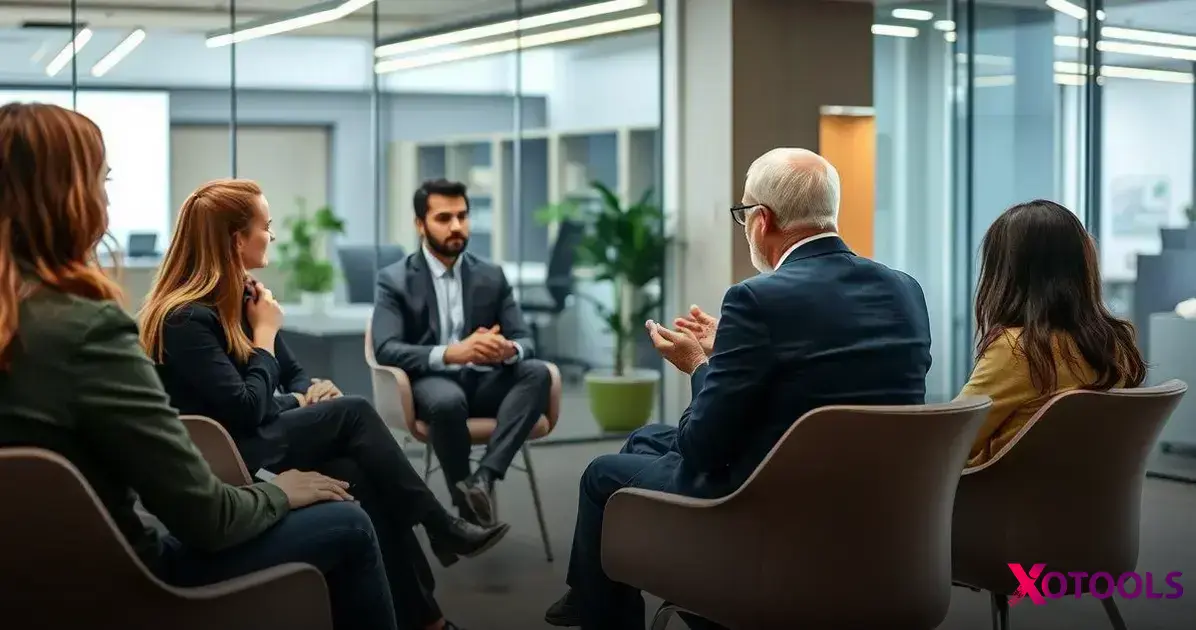ADVERTISEMENT
Preparing for a job interview can be daunting. With the right job interview tips, you can walk in with confidence.
Understanding how to present your skills, answer common questions, and follow up properly can make all the difference.
In this article, we will cover essential tips, preparing for different types of interviews, and mistakes to avoid, ensuring you are ready to impress your potential employers.
Essential Job Interview Tips
To succeed in your job interview, preparation is key. Start by researching the company and understanding its values and mission. Knowing this can help you tailor your answers, making them relevant to the organization’s goals. Practice common interview questions, so you feel confident when answering them. The more prepared you are, the less nervous you’ll be.
Another essential job interview tip is to dress appropriately. Your appearance gives the first impression, so choose professional attire that fits well and makes you feel confident. Aim for a clean, polished look. Remember that dressing well shows respect for the interview process and the people you are meeting.
During the interview, practice good body language. Sit up straight, maintain eye contact, and smile. These non-verbal cues can show your enthusiasm and confidence. Listening carefully to the interviewer is just as important, as it helps you respond thoughtfully. Engaging in the conversation can make you stand out and leave a positive impression.
Preparing for Different Interview Types
Different interview types require different preparation strategies. For a traditional interview, focus on your work experience and achievements. Be ready to discuss your resume in detail and explain how your skills match the job. For a panel interview, you might face multiple interviewers at once. Practice answering questions directed at you from different people, and be sure to engage with everyone in the room.
If you are preparing for a technical interview, it is important to review relevant skills and concepts. Practice problem-solving and be ready to answer questions on the spot. In some cases, you might need to complete a task or presentation. Make sure you understand the requirements beforehand so you can demonstrate your capabilities confidently.
Behavioral interviews focus on how you reacted to past situations. Use the STAR method (Situation, Task, Action, Result) to structure your answers. This method helps you tell a clear story about your experiences. Remember to customize your responses to highlight qualities that the employer values, linking your past behaviors to what they are looking for in a candidate.
Common Interview Questions and How to Answer Them

When preparing for interviews, it’s vital to practice common interview questions. One frequently asked question is “Tell me about yourself.” This is your chance to share a brief summary of your background, experiences, and what you bring to the role. Focus on your strengths and keep it relevant to the job you are applying for. Practice delivering this answer smoothly to make a lasting impression.
Another common question you might face is, “What are your greatest strengths?” Here, you should highlight a few key skills that align with the job description. Discuss specific examples that demonstrate how these strengths have helped you succeed in previous roles. Relating your skills to the company’s needs shows that you’re a strong fit for the position.
You may also be asked about a time you faced a challenge or conflict at work. For this question, use the STAR method to share a clear story. Describe the Situation, Task, Action, and Result. This helps interviewers understand how you approached problems and what you learned from them. Being honest and reflective can show your growth and ability to handle adversity.
Body Language and its Importance in Interviews
Body language plays a significant role in job interviews. It reflects your confidence and can make a strong impression on interviewers. For instance, maintaining eye contact shows that you are engaged and interested in the conversation. A firm handshake and an open posture can also convey confidence and enthusiasm. Being aware of your body language can help you present yourself positively.
Additionally, paying attention to non-verbal cues from the interviewer is essential. If they lean in, smile, or nod, it might indicate that they are interested in what you are saying. Mimicking their positive body language can help establish a connection. However, be careful not to overdo it; authenticity is key.
It is also vital to be aware of your movements. Avoid fidgeting, as it can suggest nervousness. Instead, use hand gestures naturally when you speak to emphasize your points. This helps you appear more animated and passionate about the discussion. By mastering body language, you can enhance your overall interview performance and make a lasting impression.
Following Up After the Interview
Following up after the interview is an important step in the job application process. A simple thank-you email can go a long way in showing your appreciation for the opportunity. Aim to send this email within 24 hours of your interview. In your message, mention specific things you discussed that excited you about the position. This personal touch can help keep you fresh in the interviewer’s mind.
In addition to expressing gratitude, use your follow-up email to reiterate your interest in the job. Make it clear that you are eager to contribute to the team and value the chance to be part of the company. You can also briefly highlight a key point from your interview that aligns with the company’s goals, further reinforcing your suitability for the role.
If you haven’t heard back after a week or two, it’s okay to send a polite follow-up email inquiring about the status of your application. Keep this message short and professional. This shows initiative and demonstrates your genuine interest in the position without being overly pushy. Remember, following up is all about keeping the lines of communication open and reinforcing your enthusiasm for the job.
Job Interview Tips: Mistakes to Avoid During Job Interviews

One of the biggest mistakes to avoid during job interviews is not researching the company beforehand. Showing up without knowledge about the company’s values, mission, or recent developments can make you seem unprepared or uninterested. Take time to learn about their products, culture, and industry position so that you can ask informed questions and demonstrate your genuine interest in the role.
Another common mistake is failing to practice your answers to typical interview questions. Going into an interview unprepared can lead to stumbling over your words or giving vague responses. Practice common questions like “What are your strengths?” or “Where do you see yourself in five years?” This will help you express your thoughts clearly and confidently during the actual interview.
Finally, be mindful of your body language. Avoid crossing your arms, fidgeting, or looking at your phone during the interview. These behaviors can suggest that you are disinterested or anxious. Instead, maintain good eye contact, sit up straight, and use gestures when appropriate to show your engagement. Being aware of your body language can make a significant difference in how interviewers perceive you.
During a job interview, it is essential to be prepared for various scenarios. One common situation is unexpected questions that catch you off guard. Practice thinking on your feet by anticipating tricky questions and formulating your responses in advance. This way, you can remain calm and composed, even if the question surprises you.
Another important aspect of interviews is the setting. Be aware of the environment where the interview takes place. If it’s in-person, arrive early to get familiar with the location and reduce last-minute stress. For virtual interviews, test your equipment and internet connection beforehand to ensure everything works seamlessly, avoiding any technical difficulties during the meeting.
Lastly, remember to engage with everyone involved in the interview process. Whether you are speaking to one person or a panel, make sure to address each interviewer and show interest in their questions. This will help you build rapport and leave a positive impression. Using names and making eye contact can go a long way in demonstrating your interpersonal skills.







